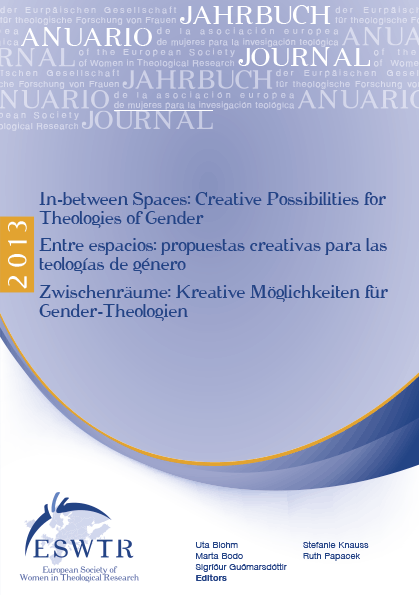Abstract:
Karin Hügel, "Queer Readings of the Song of Songs".
Because of its positive, exciting representation of extra-marital sexual desire – not only of a man, but also and in particular of a woman, the Song of Songs can be read today as a queer, biblical counter-text in relation to contemporary conservative ideas of marriage, which are still cemented through certain interpretations of the Genesis creation accounts. Queer is understood in a general sense as "against the dominant norm". While woman is subordinate to man according to the second creation account in Genesis, the Song of Songs talks about mutual desire and a fundamental enthusiasm for human eros. The Song describes the attractiveness and beauty of the lovers and can be interpreted as a queer counter-text to Gen 3:16-19 in the second creation account, in which pains of birth and of agricultural labour are described etiologically as the consequence of Adam's and Eve's eating of the fruit from the tree of knowledge. In contrast to the mostly androcentric perspective of other texts in the Hebrew Bible, the Song describes female desire from a woman's point of view, even more often than the male protagonist sings of his sexual passions for his female lover. Paradoxically, feminine eroticism is celebrated, but also controlled in the Song, although the latter is never quite successful. The woman's incisive self-assertion in Song 1:5: "I am black but beautiful" has become a locus classicus of the Afro-American civil rights movement, whose slogan is: Black is beautiful. This passage from the Song is open to a queer, anti-racist reading. In the Song of Songs, we encounter a different language of eroticism. Queer readers might be particularly interested in the Song because of its mundanity. This collection of non-religious songs among the otherwise religious texts of the Bible can be seen as queer because of its sexual innuendos and metaphorical, often ambiguous descriptions of sexual acts.
Karin Hügel, "Queere Lesarten des Hohelieds",in: Uta Blohm/Marta Bodo/Sigríður Guðmarsdóttir/Stefanie Knauss/Ruth Papacek (eds.), In-between Spaces: Creative Possibilities for Theologies of Gender/Entre espacios: propuestas creativas para las teologías de género/Zwischenräume: Kreative Möglichkeiten für Gender-Theologien, Journal of the European Society of Women in Theological Research/Anuario de la asociación europea de mujeres para la investigación teológica/Jahrbuch der Europäischen Gesellschaft für theologische Forschung von Frauen, Volume 21, Peeters, Leuven 2013, 169-185.
Journal of ESWTR 21/2013
203 pages,
ISBN: 978-90-429-3052-0,
ISSN: 1783-2454,
eISSN: 1783-2446.
EUR 45,00.
Abstract and download, Peeters Online Journals
Peeters Online Journals
I gave a lecture on my queer readings of the Song of Songs as part of CoVen don't preach: Lezzing my religion at the Autonomous Centre Cologne on June 11, 2016 and at the
Annual Conference of the European Association of Biblical Studies on August 3, 2021 at the University of Wuppertal in Germany.
Abstract: Queer Interpretations of the Commandments of Love in Leviticus
Abstract: Jewish Legal Interpretations of Female Homoeroticism
Abstract: Readings for Blessing Ceremonies of Same-Sex Couples Queerly Interpreted
Abstract: King Davidʼs Exposure while Dancing: A Queer Reading of 2 Samuel 6
Abstract: Queer Appropriations of David and Goliath: Artistic Self-portraits as Defeated Pederasts
Abstract: A Queer Reading of Qohelet 4,9-12
Abstract: A Queer Reading of Joseph
Abstract: Queer Readings of the Hebrew Bible. The Book of Ruth and the Creation Accounts
Back to publications

